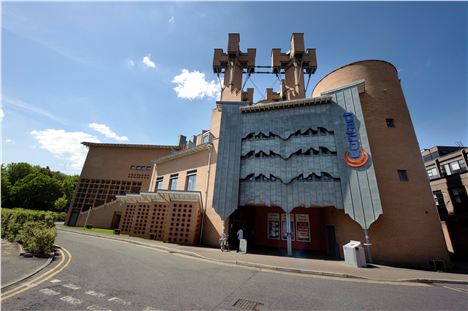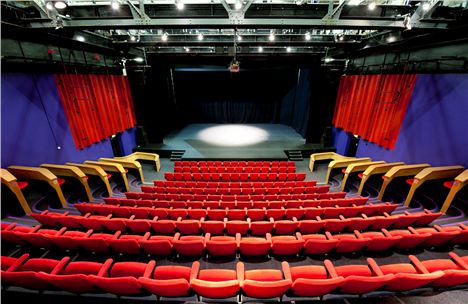CONTACT Theatre have appointed Sheppard Robson architects to undertake a £6m remodelling of the youth arts venue.
The 40,000 sq ft project cost £3.4m and was constructed from 1997 to 1999, winning the RIBA award in 2000.
Sheppard Robson - the practice behind Oxford Road's new RICS-shortlisted CityLabs, MMU's Birley Fields campus and Siemens' new Middle East HQ in Abu Dhabi - will increase the capacity and flexibility of the performance and media spaces, redesign the public areas, and overhaul the back of house and new build elements to increase the capacity of the venue by 300 sq m.
According to the architects, Alan Short & Associate's highly distinctive exterior structure (completed in 1999) 'will be fully retained'.
 Contact - designed by Alan Short & Associates (1999)
Contact - designed by Alan Short & Associates (1999)
Arts Council England have earmarked nearly £4m for the project, with the University of Manchester and Bruntwood (partners in the 'Corridor Manchester' initiative) committing 'in-kind' development and project management support.
James Jones, associate partner at Sheppard Robson, said: “The team’s ambitions are to significantly improve the experiences of visitors, performers and staff whilst also looking at how Contact can make the most of its setting along Corridor Manchester, which is quickly becoming the commercial, educational and cultural spine of the city."
In 1993, University Professor of Architecture, Roger Stonehouse, put together a shortlist of 32 architects to redesign the dated Contact - where an unfit-for-purpose 300-seat theatre had stood since 1965
The panel chose the only architect who'd never before designed a theatre, Alan Short.
The 40,000 sq ft project cost £3.4m and was constructed from 1997 to 1999, winning the RIBA award in 2000. The judges said:
“The project has a strong environmental agenda made manifest in the strong root forms of the natural ventilation system: these combine with a zinc ‘curtain’ at the entrance to create a highly theatrical effect, with references to Gaudi and the castles of southern Germany, in some way architecture as stage set. The theatre has an uplifting atmosphere and this is unquestionably an exciting and eccentric addition to the Manchester scene.”









